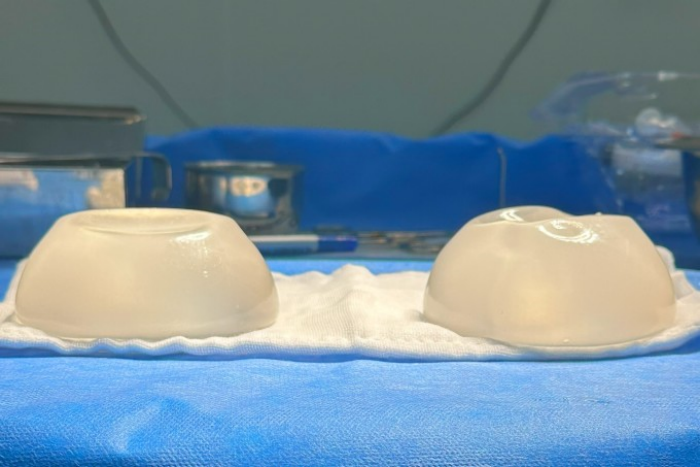A new scientific study has identified elevated levels of inflammatory proteins in women with breast implant illness (BII), offering new insights into the condition and the potential for improved diagnosis and treatment.
Researchers examined blood samples from 43 women diagnosed with BII and found a marked increase in inflammatory markers following silicone breast implantation. The study used advanced testing technologies — including the Olink Target 96 Inflammation Panel and Meso Scale Discovery — to measure these changes.
Elevated FGF-19 May Be Key Indicator
One protein in particular, Fibroblast Growth Factor 19 (FGF-19), showed the most significant change. Median FGF-19 levels rose by 64% — from 136 picograms per milliliter (pg/mL) before implantation to 195 pg/mL afterward. This increase was statistically significant (p = 0.001).
Interestingly, women with breast implants but no symptoms of BII also showed similar FGF-19 levels. This suggests that while FGF-19 alone may not explain why only some women develop symptoms, it may still play an important role in the body’s inflammatory response to implants.
Inflammatory Profile Points to Systemic Reaction
In total, 16 inflammatory proteins were found to be elevated after implantation. These included MCP-1, CD8A, and CCL11 — all known to be associated with immune response and inflammation. The findings suggest that silicone implants may trigger a complex systemic reaction in a subset of women.
While many women with BII report improved symptoms after having their implants removed, scientists still don’t fully understand what causes the condition or why it affects only some individuals.
Potential for Diagnostic and Therapeutic Use
The study authors propose that tissue removal could help restore FGF-19 function, potentially reversing some of the metabolic disruptions caused by the implants. They believe that monitoring FGF-19 may serve as both a diagnostic tool and a target for future therapies.
“These findings point to FGF-19 as a promising biomarker,” the researchers noted. “Further investigation is needed to fully understand its role in BII and whether it can guide treatment.”
Moving Toward Better Understanding of BII
Breast implant illness remains a controversial and poorly understood condition. Patients often report a mix of systemic symptoms — including fatigue, brain fog, joint pain, and inflammation — but diagnosis is challenging due to the lack of clear clinical markers.
This new research offers hope for better identification of the illness and highlights the need for more targeted studies. Understanding the body’s inflammatory response to implants could lead to more personalized and safer treatment options for women in the future.
Related topics:
- What Is Internal Breast Augmentation?
- Reduce Swelling After Breast Lift: Expert Recovery Tips
- 13 Common Risks Of Mastectomy


